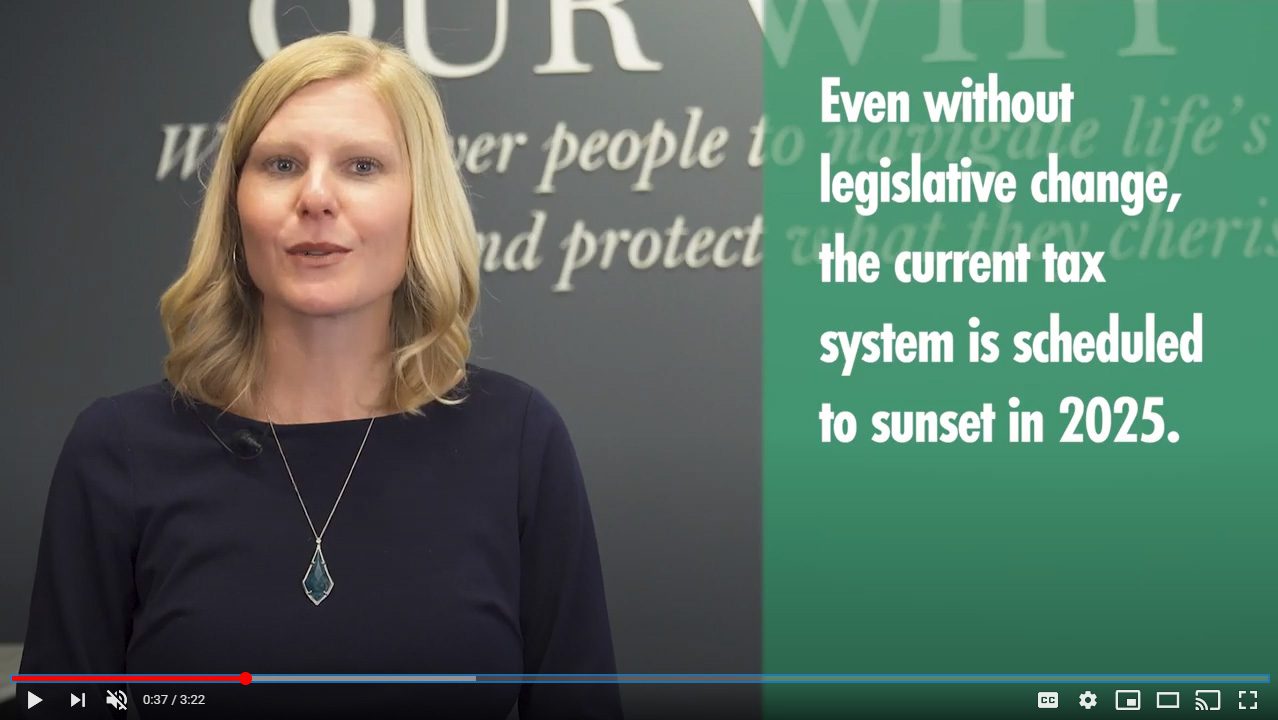So, my taxes are going up. What action should I take?
This fall, many high-income taxpayers ask this very question. During the election, the topic of higher income tax rates circulated throughout the news media. Biden’s tax plan included several potential changes, most of which would result in more taxes in the highest income earners. Even without legislative change, the current tax system is scheduled to sunset in 2025, which will result in higher income tax brackets, elimination of the 20% deduction for some business owners, and a lower estate tax exemption.
Regardless of the tax law, many individuals are currently growing their compensation and portfolios. Their income is expected to be higher in the future. With a little tax planning, you can keep more of what you’ve earned, especially when tax rates are going up.
Let’s review four potential planning opportunities:
First, I encourage a review of your tax advantage retirement plans, decide what kind of payroll deferrals you should make. Traditional tax deferred contributions give you a current tax deduction, but ultimately distributions are taxable when money is withdrawn. Traditional contributions can be better for high income taxpayers. On the flip side, there’s no upfront deduction for Roth contributions. However, a Roth account can be withdrawn tax free in retirement. So, if you believe taxes are going up, take advantage of Roth contributions now, before transitioning to traditional contributions during the high tax years.
Another option: As you review your retirement plans, consider a Roth conversion. In a Roth conversion, taxes are paid now to move traditional retirement planned or IRA money to Roth. Going forward, any growth will be tax free. This strategy works well when taxes are lower and expected to go up.
The third tax planning strategy applies to a smaller group of people. Those who are especially charitable or business owners. These taxpayers have some control over their tax deductions. They could delay a large charitable gift or a big capital investment until a time when tax rates are higher and the deduction is worth more.
The last planning strategy is to review your portfolio and recognize capital gains now, assuming the taxes that you pay would be less than the rate you would pay in the future. This planning opportunity requires a word of caution. Portfolios don’t turn over every year. Some investments can be held indefinitely. Paying tax today to avoid paying tax many years in the future probably doesn’t make much sense. However, a lower tax environment can be a great time to take profits and equities or raise money for a big purchase.
If you have more financial questions, don’t hesitate to ask your family CFO. We do more so you can too.
Disclosure: The opinions voiced in this material are for general information only and are not intended to provide specific advice for any individual. Examples contained herein are for illustrative purposes only based on generic assumptions. Trademarks and copyrights of graphics utilized herein are the property of their respective owners. This is not an offer to buy or sell securities, nor does it represent a specific recommendation. Please speak with a qualified tax, legal or investment professional before making any changes to your personal situation.



